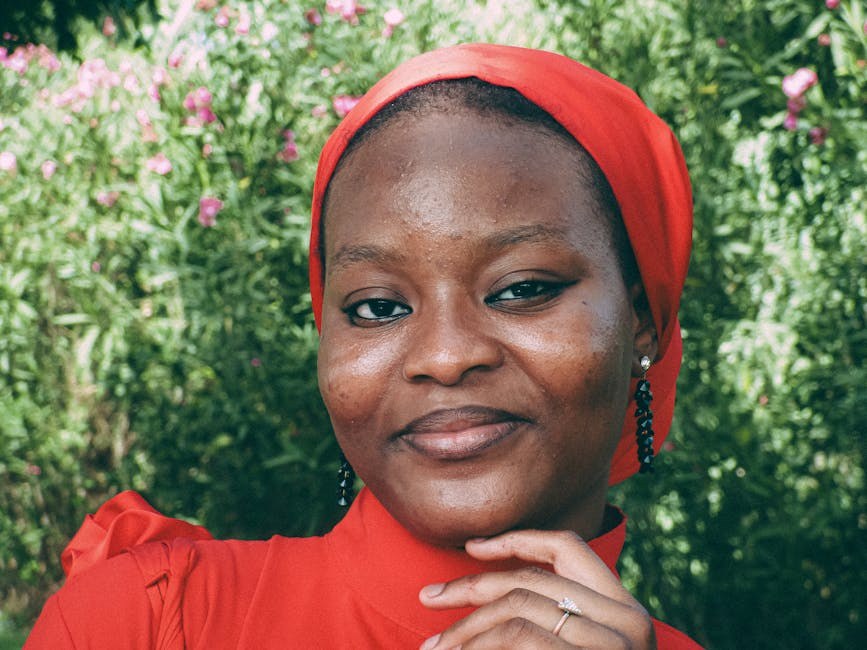The invitation arrived like a note slipped through time – a glossy card with our school crest and a date that pulled the past into the present. I turned it over in my hands and felt that mix of curiosity and caution I hadn’t known since homeroom. Part of me wanted to ignore it, to keep the past safely folded away. Another part bristled with restless energy, whispering that some doors deserve to be opened again. That tug wasn’t just nostalgia; it was the faint hum of teenage love echoing through an adult life that had learned to move quickly and speak smoothly. I told myself it would be a simple night out, nothing more, yet even that casual promise sounded like a cover story for something older and truer.
The card that rewound the clock
Years had slipped by with the clean efficiency of calendar pages, and in those years I had collected a sheen of confidence – the kind that comes from late nights, bright lights, and a job where you thrive if you can charm a crowd. Still, when I read that our year was gathering again, a forgotten rhythm tapped at my ribs. Reunions are strange ceremonies: equal parts celebration and ledger – who you were, who you became, who you still might be. I called a few friends, the ones who knew my greatest hits and my worst habits, and joked about us taking one night to revisit the stage where we first learned our lines. They laughed at my sudden enthusiasm, but I heard the same fragile daring in their voices. Beneath every shrug, teenage love still lived like a penciled note in the margins – faint yet legible.
Arriving where the years meet
The hotel bar glimmered, a little too polished, a little too eager to forgive the past. Groups formed quickly – clusters of familiar shapes with new hairstyles, new waistlines, new rings. I expected little beyond the comfort of old jokes and a playlist that made the room nod in unison. But anticipation is a stealthy architect; it builds a bridge before you know you need to cross it. I walked the carpeted aisle from the entrance to the first hello and felt unsteady for the gentlest reason – the possibility that teenage love could survive a decade simply by staying quiet.

We fell into conversation like kids who’d been separated by a long bell. Nicknames resurfaced. Stories ran on their own legs. People I remembered as fearless now spoke softly; people I remembered as shy now shone. My own voice found that old, joking cadence, the one that used to cover for nerves. Yet under the banter a pulse returned – a private drum reminding me why I had avoided reunions for so long. Memory is a projector; it doesn’t only show what was, it overlays what might have been. And for me, that projection had a name I hadn’t said aloud in years – the name that once defined teenage love in the singular.
A glance that lifted the past to the surface
I reached the bar for a second drink, weaving through a gallery of second chances. When I turned with a glass in my hand, I brushed shoulders with a circle of women whose laughter spun like coins on a table. I mumbled an apology and looked up – and there they were, the eyes I had known before I knew myself. The room didn’t stop; it simply changed gears so softly that only the heart could hear it. Her face carried time the way a river carries light – not erasing what it touches, just moving with it. In an instant, I felt the tender bite of teenage love: the clumsy courage, the harmless catastrophes, the certainty that one person’s glance could rewrite the weather.
It wasn’t just recognition; it was retrieval. Memories rose as if called by name. The old classroom materialized – third row, middle of the middle, me pretending to be invisible while wanting the opposite. I could smell chalk dust and aniseed from the school store. I could hear sneakers scuffing tile. And then that first day she had walked in, announced by a hopeful hush as the teacher introduced a newcomer. I didn’t know yet that teenage love was a language made from stammers, but I was fluent in it anyway.

Ninth grade, as loud as ever
Back then I sat adrift between the earnest and the effortlessly cool – the unremarkable latitude where most of us really live. She took her seat by the window, and the afternoon brightened like a secret had just been told. I spent weeks gathering sentences that never made it out of my mouth. A friend, amused and impatient, decided to help with a trumpeting announcement across the room. The laughter that followed felt like a curtain dropping on a play I hadn’t even auditioned for. Teenage love is a keen dramatist – it stages triumph and disaster with the same props.
Later that evening, I went bluntly honest and caught the gentlest refusal a person could deliver. It should have been the end; instead it was the beginning of a very long echo. I dialed her number just to hear the opening hello and hung up before courage had to cash the check. When caller ID arrived, my secret collapsed with a beep, and she called me what I probably looked like – a kind of harmless little storm, comical in its persistence. I winced, sulked, adjusted. I learned to translate what I felt into weather reports – how’s it outside – as if small talk could hide the sky-churning truth. Teenage love turns us into meteorologists of our own hearts.
Graduation like a moving walkway
We kept orbit – near enough to feel gravity, far enough to avoid collision. I carried mixtapes I never delivered, cards I never signed, all with a neatness that pretended to be closure. Graduation came, irreverent and kind. We swapped goodbyes, gave each other new names to soften the old ones, and stepped into our separate futures. Somewhere along the way, I learned to speak to rooms without apologizing for my voice. I swapped the awkward mid-row seat for a place at the mic. But growing up is not the same as growing out of something. Teenage love doesn’t vanish – it settles into the foundation, supporting weight it no longer needs credit for.

Back to the ballroom, back to the quake
My friends noticed before I said a word. A slap on the shoulder, a chorus of teasing, the old conspiracies assembling like they had been waiting in the coatroom. I laughed to keep the floor from tipping, because suddenly the room held two eras at once. There I stood – the polished present and the quaking past sharing a spine. I told myself she wouldn’t recognize me. The glasses were gone, yes, but more than that – the hesitance had been trained into rhythm. Yet the body remembers the first script it learned. Teenage love teaches a reflex – you see the person and the years drop their luggage.
Stage lights, borrowed courage
I did the only thing I knew how to do when my insides turned to static: I volunteered to host a bit. An old teacher passed me the microphone with a smile that smelled like chalk and camaraderie. Sound rolled through the speakers and my posture righted – the simple magic of amplified confidence. I warmed up the room, stacked jokes in the right order, tossed the kind of easy challenges that get strangers to play together. I didn’t look directly at her, not at first, because grammar matters; this sentence needed a steady subject before it reached for its verb. Still, through the corner of my eye, I saw her leaning toward a friend, whispering the way people do when a memory taps their elbow. Teenage love, apparently, likes a good show.
The game that narrowed the distance
Later, a team-building game took over – one of those silly pair-and-count affairs that force you into new configurations. I edged the circles until chance became intention. When we landed in the same grouping, I let surprise bloom like an actor’s well-timed pause. “Nancy?” I said, as if I were naming a constellation I’d just found again. Recognition traveled across her face like sunrise. Not shock exactly, more like a checkmark on a list she didn’t realize she was keeping. The game eliminated us for bad arithmetic, which felt like comic justice. The scoreboard didn’t matter; the distance had been rewired smaller.
I pulled a chair for her – a small ceremony that drew a smile. We started talking the way people do after a storm has washed the air clean. The conversation was easy without being simple. We left space for the person each of us had been and the person standing there now. There was laughter – generous, wincing, shared – at the ridiculousness of old phone calls and grand feelings carried in very small pockets. Teenage love had returned not as a drama, but as a weather system clearing to blue.
How the night quietly changed course
If I had to map the evening – not in minutes but in turns – I’d mark a handful of bends that reset the current. They weren’t grand gestures. They were small doors that opened without squeaking:
- A chance bump that replaced a whole decade of hypothetical conversations.
- An old skill – holding a room – borrowed from adulthood to steady a childhood tremor.
- Eye contact that admitted familiarity without demanding history.
- A chair pulled back, a smile answered – proof that kindness is a vocabulary all eras understand.
- Choosing to tell stories we had once been embarrassed by and finding them tender instead of sharp.
Each turning point felt modest in the moment and enormous in the sum. This is how teenage love matures – it learns to build with small bricks. Not everything has to be a rooftop declaration. Sometimes the architecture you need is a path cleared through a crowded room and the decision to walk it at the same pace.
Dinner, where time practiced its duet
We wandered to a quieter corner restaurant, the kind with low lighting that flatters memory. The server refilled our water, and the table turned into a little island where the past could visit without overstaying. We talked about work and family, the simple survival tricks you gather when the world won’t slow down. Then we circled back to the archive – the schoolyard nicknames, the group photos where nobody looked at the camera, the way we measured our days by bells and buses. Shame softened into humor. What used to feel like a bruise now felt like a story that had waited patiently to be told correctly. Teenage love, when revisited with care, is less about replaying scenes and more about translating them – same plot, wiser subtitles.
She said she was surprised – not by seeing me, but by how easily the years folded. I said the same while pretending not to watch her mouth learn the new shapes of my name. I heard my voice shift – that gentle drop into honesty that happens when the stage lights dim. I told her I was glad the old versions of us had survived long enough to meet the new ones. She squeezed the edge of her napkin and let a smile tip toward maybe . Teenage love is fluent in maybes – but this time, the word felt like an open door rather than a detour sign.
A walk that refused to hurry
We left the restaurant and wandered into the garden – the hotel’s curated quiet. Lamps drew soft circles on the path; trees conversed in their usual hush. We sat on a bench that had probably held a thousand small speeches. I didn’t deliver one. Instead I told the simplest truth I could make – that seeing her had rerouted my evening in the best way. She rested her hand on mine, then added the other like punctuation. The gesture was gentle, but its meaning was decisive. Teenage love, once the author of dramatic cliffhangers, had learned a cleaner sentence: here, now, together, let’s see.
We didn’t make promises. We didn’t return to declarations that once tripped us. We acknowledged a fact that felt both new and antique – that a feeling can remain faithful even when the people holding it are revised editions. If the past had been a rehearsal – and in some ways it always is – then this was opening night with the jitters swapped for joy. Teenage love had grown up without losing its accent.
What we learn when we circle back
It’s tempting to pretend that reunions are about victory laps – the careers, the addresses, the proofs that we navigated the maze well. But the secret utility of a reunion is softer. It offers a mirror that reflects not just accomplishments but continuities – the small, stubborn pieces that time declined to sand down. In that mirror, I didn’t see a flawless transformation. I saw a through-line – a kid who learned to speak into a microphone to steady his hands, a man who used that same voice to start a kinder conversation. I saw how teenage love, far from being an embarrassing chapter to skip, had been the early draft of qualities I still rely on: sincerity, persistence, the audacity to care out loud.
There’s also mercy in coming back. We forgive the past for its awkwardness and thank it for its rehearsal value. The younger versions of ourselves were messy – earnest to the point of comedic. But the mess held truth. And truth, once discovered, doesn’t require retroactive perfection. Standing there under lamp light, I realized I didn’t want to overwrite what had happened years ago. I wanted to include it – to let teenage love keep its place in the story not as a relic, but as a seed that finally got the weather it needed.
What stayed, what changed
She still laughed with her whole face; I still organized my nerves into jokes. She had learned the art of pause – the patience that lets a moment show what it’s worth. I had learned to listen the way you listen to a favorite song after a long time apart – more attentive to the backing harmony than the chorus. The world outside the hotel kept hurrying, but the garden ignored the tempo. We sat inside that disregard and let our sentences travel at a human pace. Teenage love had started as a sprint; it reappeared as a walk that refused to hurry.
Later we rejoined the ballroom, where the playlist had gone from bravado to ballads. Friends intercepted us with their questions, their grins, their invented nicknames for what they assumed they were seeing. We didn’t confirm anything. We didn’t deny anything either. We simply reentered the room like a chapter break – same book, new paragraph. I felt lighter in a way that had nothing to do with the drinks and everything to do with relief – not of winning something, but of finding out that what mattered had not been lost, only waiting. Teenage love, it turned out, wasn’t trapped in those old hallways; it had followed us patiently and was pleased to be invited back into the dialogue.
The steadying truth
By closing time the hotel’s glamour had softened into an afterglow. People collected coats and promises, took one more picture, argued playfully about breakfast plans that would never happen. I said goodbye to the microphone, to the stage lights, to the version of myself that needs to perform. The truer part of me had already chosen a different audience – one person, two eyes, a conversation that could keep its own time. I don’t know what anyone else will remember about that night. For me, memory will keep it simple: the touch of her hand where words were unnecessary, the shared recognition that the past can be both completed and continuing. Teenage love did not flash like lightning; it settled like weather – a front moving in, gentle and decisive, the forecast we had been living toward without quite knowing it.
When the elevator doors closed and the numbers lit their sequence, I caught our reflection cast side by side. We looked briefly like the students we had been – two people learning how to stand in their own skins – and then like the people we were, better at being gentle with what matters. We didn’t promise forever; we promised the next step, and then the next, with the kind of curiosity that makes room for joy. If there is a moral – and I’m wary of those – it’s only this: some stories are not second chances so much as continuations. Teenage love doesn’t always end; sometimes it matures into its own present tense and asks, quietly and clearly, to be spoken again.